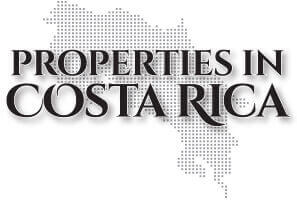Educating Kids in Costa Rica
September 11, 2013
Properties in Costa Rica
By Rod Martin
Simply put, the reason most families do not send their children to private school is the cost. The best private elementary schools in Costa Rica can run up to $275/month. However, many parents understand the benefits— bilingual studies, text books, exceptional teachers, and well-equipped classrooms— to name a few. Extra-curricular activities often include some form of art or dance, sports and community projects. These creative activities teach kids so much more than memorizing dates in history and are often highlighted in private schools.
Interestingly, higher education reflects the opposite paradigm— fewer public schools with better reputations and (often) results for graduates. Currently, there are six public and 60 private universities in Costa Rica. According to StateUniversity.com, “…higher education is free for nearly 50 percent of the enrolled students.”
The increase in private universities is a good sign for the future of the Costa Rica, but what about options for the parents of younger kids?
Private Education For Kids
To give you an idea of how “private school” has become synonymous with success, there are now two private schools in Uvita, a small town on the Costa Ballena, quickly becoming the center of the southern Pacific zone. They are called Escuela Verde and the new Uvita Christian Academy.
Escuela Verde is a private elementary school was founded by a couple of parents who were unimpressed by the public school options in the area. Their mission statement is clear–
“Escuela Verde prepares children to be resourceful and independent while inspiring them to give back to their multi-cultural community and the natural environment.”
The school follows Costa Rica and U.S. grade level guidelines, and many subjects are taught in both English and Spanish. Homework assignments are common as are extra-curricular activities. In 2012, they received their certification. They have scholarships for local families, and there is always a waiting list.
The Uvita Christian Academy, opened in Uvita in 2013. They have received positive reviews, and they also have a waiting list. Students are first tested to determine any gaps in various subjects. The curriculum then focused on filling those gaps, so the students have a strong foundation to build on.
A Melting Pot Of Ideas
Compared to topics like crime and politics, education does not receive a lot of publicity in the media; however, it is at the top of the list for many parents who want to raise their children in Costa Rica.
And children aren’t the only ones with an opportunity to grow in new and exciting ways. Virtually every town in Costa Rica has someone who is offering Spanish as a second language. In fact, Uvita has a few tutors available to help. Adding another language to your life enriches more than your vocabulary; it enriches your life.
The progressive ideas of many foreigners blend well with the grounded, family focus of the typical Tico community. Popular ideas like sustainability, preservation, and education are lighting the way for a brighter future.

